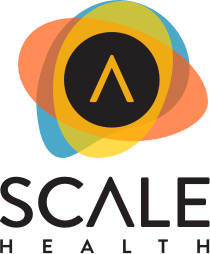The opioid crisis is not something we can talk about in the past tense. It rages on all around us, tragically fueled by circumstances, such as the COVID-19 lockdown and current inflation problems. In fact, drug overdose deaths jumped by 30% in 2020 during the height of the coronavirus pandemic, and the shockwaves of geopolitical events continue to hit those most suffering from addiction.
To this end, Vice News recently documented shortages of heroin in many cities, leading deadly Fentanyl to present an even bigger threat to addicts desperate for a fix. Stopping this alarming trend from worsening requires immediate scaling of effective solutions to the people most in need of help—which is exactly what QuickMD is doing with its lifesaving TeleMAT offering.
Even so, it’s all too common for Americans to be cynical about the promise of tech to improve the lives of regular people, especially a vulnerable population like opioid users. After all, America’s billionaires, led by Silicon Valley maestro Elon Musk, added $2 trillion to their collective wealth in 2020 while many others battling opioid addiction lost their jobs and other stabilizing factors. Also, Silicon Valley frequently develops products and services that seem aimed exclusively at the rich, like smartphones that practically require a home mortgage to afford. This approach to technology only contributes to the “Digital Divide” in society, instead of bringing us together.
But not all technology works this divisive way. High tech done right has the democratizing effect of leveling the playing field. One such example of an emerging technology with a pluralistic impact is cryptocurrency. Anyone can invest in crypto—even in small dollar amounts—to build a better future for themselves.
In a similar fashion, QuickMD is bringing this same democratizing effect to opioid addiction by making the most effective treatment on the market, MAT (medication-assisted treatment), available to more people. Removing needless barriers, like gatekeepers, it helps ensure access to all. QuickMD’s innovative approach is to deliver effective MAT by harnessing telemedicine, a powerful combination called TeleMAT. Like many truly great technology solutions, TeleMAT was purpose-built to address a critical problem: opioid addiction and its shockwave effect upon individuals, families, and our communities.
Of course, opioid addiction is an equal opportunity problem. It doesn’t care about race, class, geography, wealth, or any other factor. The government estimates that 10 million people abused opioids in 2019, including people from all walks of life. A related series of videos from the CDC highlighting stories of addiction is stark evidence that everyone from a high-flying New York stockbroker to a Native Alaska villager can become addicted to opioids.
A problem that strikes Americans no matter where they live, or their wealth status, requires solutions equally available to everyone. Accordingly, QuickMD’s TeleMAT provides effective treatment to all, especially those who just a few years ago had no hope of getting themselves on the road to recovery with the help of MAT and its primary pharmaceutical component, Suboxone.
Before QuickMD introduced TeleMAT to Americans addicted to opioids, MAT wasn’t an easy treatment to procure. Relatively few physicians were licensed to provide MAT. The patient, whose only goal was to defeat addiction, also had to meet certain criteria beyond their control to secure this treatment. For instance, they had to reside close enough to a physician offering MAT while also overcoming the social stigma of visiting an addiction treatment clinic where they might be recognized by friends, colleagues, and family.
QuickMD is revolutionizing addiction treatment by wiping out both problems at once. TeleMAT sessions can be completed by patients anywhere their computer or smartphone can connect to the internet, meaning they don’t have to be lucky enough to live close to a treatment center. This is particularly critical to helping rural patients achieve the same success as patients dwelling in the cities. Even better, patients can speak to their physician from the privacy of anywhere they feel comfortable.
QuickMD is achieving what every good tech platform strives for with TeleMAT: building bridges between diverse groups for the betterment of society. TeleMAT brings together caring physicians, effective treatments, and a patient population as diverse as the opioid epidemic itself. The company’s patients live in New York City, tiny “one traffic light” towns, and everywhere in between.
The caregivers at QuickMD believe everyone wishing to overcome opioid addiction deserves the most effective treatment available, no matter who they are and/or where they live. TeleMAT is the solution to make the highest standard of care available to the greatest number of people. If you are a physician interested in saving lives with this revolutionary protocol or an investor intrigued by this tech solution to tackle America’s greatest medical challenge, please contact QuickMD now.
Jared Sheehan: Jared is the Chief Operating Officer at QuickMD. He is a serial entrepreneur who has worked at the intersection of social impact and technology for the last decade. Prior to QuickMD, he was a senior consultant at Deloitte Consulting in their Social Impact Strategy practice. Jared is a Lean Six Sigma Black Belt and has deep healthcare experience, including the Children’s Miracle Network Hospitals, Aurora Healthcare, Neeka Healthcare, Scripps research, and the Commonwealth of Massachusetts Health Insurance Exchange. Jared is the winner of the FDA Naloxone App Competition. Jared graduated Summa Cum Laude from Miami University.
Michael Ashley: Michael Ashley is a contributing writer for QuickMD and the author of more than 30 books, including four bestsellers. A former Disney screenwriter and current professional speaker, he is also a columnist with Forbes and Entrepreneur, covering medical applications of AI and Big Data. Beyond contributing to these publications, Michael has written for the HuffPost, Fast Company, the IEEE, the United Nations’ ITU News, the Orange County Business Journal, The California Business Journal, Newsbase, and the Orange County Register. He has also been featured in Entertainment Weekly, Fox Sports, and KTLA.




